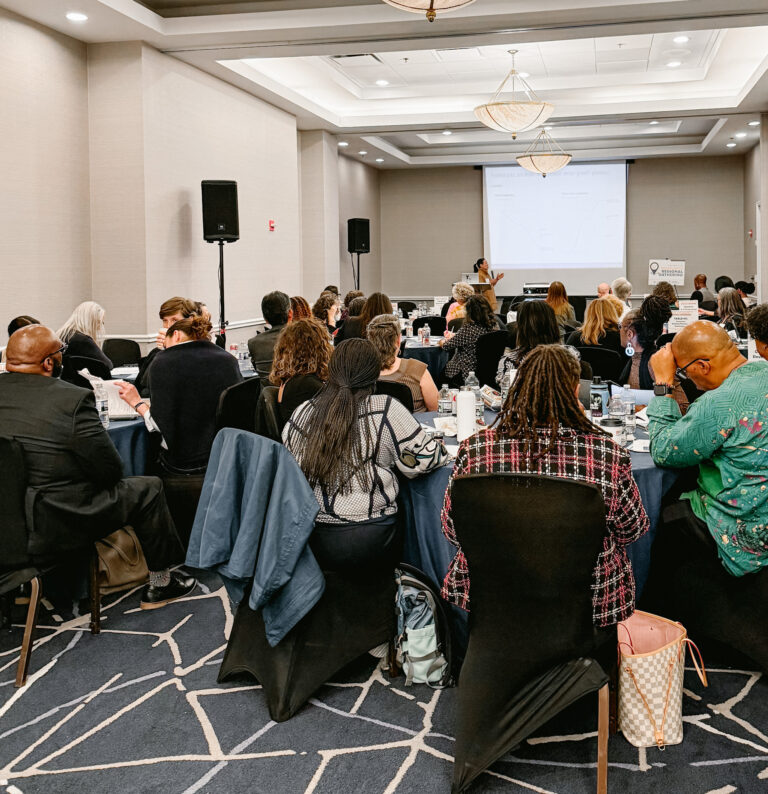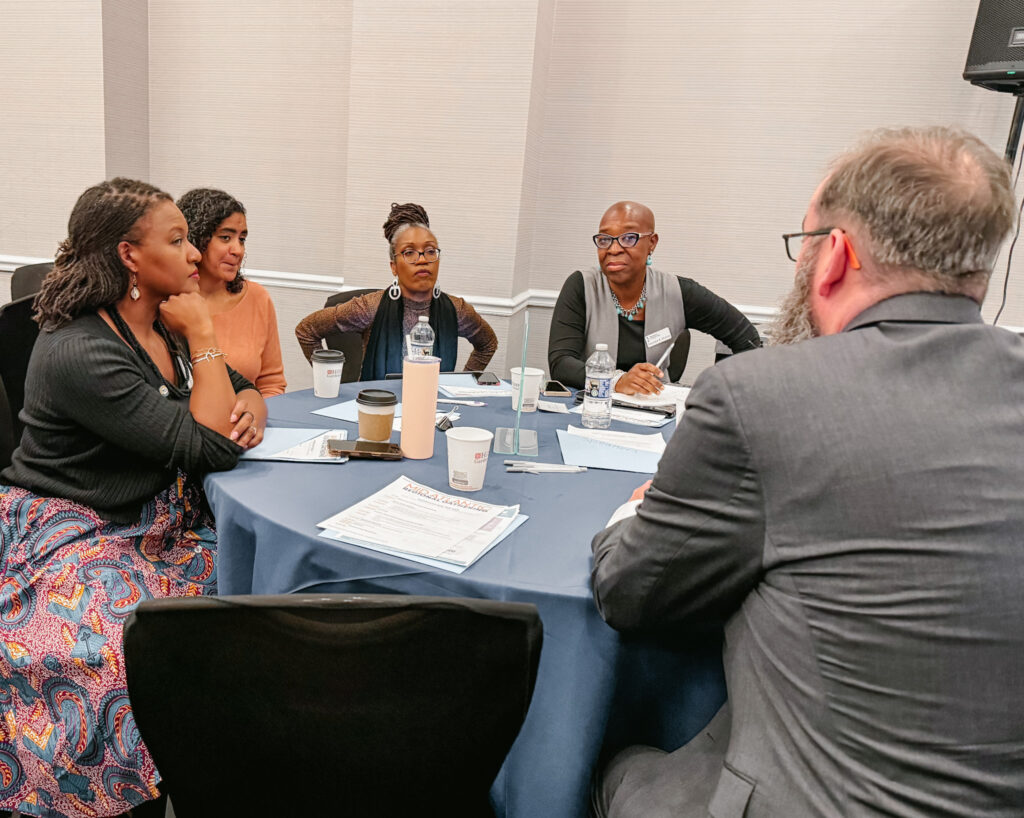A blog post by Robin Mockenhaupt, VFN’s Director, Policy & Advocacy
On October 7, over 70 people from funders across Maryland, Washington, DC, and northern Virginia met for a 3 ½ hour regional dialogue. This unique meeting was billed as a “Mid-Atlantic Regional Gathering,” and was sponsored by VFN and our sister philanthropy infrastructure organization, Maryland Philanthropy Network (MPN). We are grateful to the four VFN-MPN members who served as co-hosts of the event: the Annie E. Casey Foundation, the Greater Washington Community Foundation, Arlington Community Foundation, and ACT for Alexandria. We also are appreciative of the support from the Bainum Family Foundation, who had the foresight to bring VFN and MPN together for not only this event, but also for supporting ongoing partnership across our region.
The purpose of this gathering was multifold. We wanted to bring together philanthropies across the region to develop and expand our relationships and ability to work together. We wanted to acknowledge the current environment for philanthropy and nonprofits, and how this calls us to respond, individually and collectively. We wanted to raise awareness of the opportunities through a partnership to work together toward regional policy action, and to explore areas of common interests. Finally, we wanted to understand funders needs in the region given the current climate, and understand how grantmaking practices are changing and how funders are leading.
After welcomes by Danista Hunte, CEO of MPN, Robin Mockenhaupt, VFN’s Director of Policy and Advocacy, and Julia McKay, Senior Manager of Healthy Democracy, of the Children’s Equity Fund (the 501©4 arm of the Bainum Family Foundation), the meeting led off with a “State of the Region” Panel of four leaders to discuss a fiscal analysis of the current environment for philanthropy and nonprofits.

The moderator was Michael Cassidy, Director of Policy Reform and Advocacy from the Annie E. Casey Foundation, and the panelists were Ashley Kenneth, CEO of The Commonwealth Institute for Fiscal Analysis in Virginia, Benjamin Orr, CEO of the Maryland Center on Economic Policy, and Erica Williams, CEO of the DC Fiscal Policy Institute. Panelists discussed the current economic realities of their states, as well as the impacts of immigration enforcement, federal funding reductions and recissions, and reductions to program funding from H.R. 1 to programs like Medicaid and the Supplemental Nutrition Assistance Program (SNAP). The panelists shared their perspectives on how to support and maintain a lasting impact in the region, which included a focus on state policy and advocacy, using voice, and funding innovative networks and partnerships.

Over lunch, participants broke into small groups focused on topics of interest to members, including health, early childhood and youth education, economic mobility and workforce development, housing and community development, immigration, and movement building and organizing. Each small group discussed the biggest challenge to progress on the issue, innovative strategies, and how this area of work was being supported through advocacy or movement building.
After lunch, Tracy Loh from the Brookings Institution presented her research from the recently released DMV Monitor, a data interactive and set of analyses that highlight the economic and social effects of federal restructuring and other policies on the region.
The large group discussion focused on priorities for a regional agenda. Some of the key takeaways from the meeting were the importance of relationships, trust, transparency, working together across issue areas, sharing common narratives, and working together to achieve our common goals. The discussion also indicated an appetite for more region-wide coordination, collaboration, and cross-sector partnerships. The regional gathering concluded with a networking reception and opportunity to share future follow-up opportunities across Virginia, Maryland, and DC.